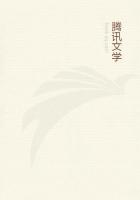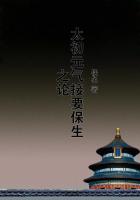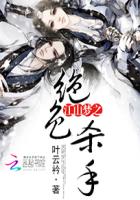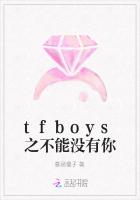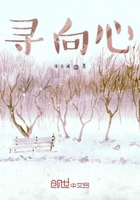Here flying was discussed at length, and Mrs. Thornbury delivered an opinion which was almost a speech to the effect that it would be quite necessary in time of war, and in England we were terribly behind-hand. "If I were a young fellow," she concluded, "I should certainly qualify." It was odd to look at the little elderly lady, in her grey coat and skirt, with a sandwich in her hand, her eyes lighting up with zeal as she imagined herself a young man in an aeroplane.
For some reason, however, the talk did not run easily after this, and all they said was about drink and salt and the view.
Suddenly Miss Allan, who was seated with her back to the ruined wall, put down her sandwich, picked something off her neck, and remarked, "I'm covered with little creatures." It was true, and the discovery was very welcome. The ants were pouring down a glacier of loose earth heaped between the stones of the ruin--large brown ants with polished bodies. She held out one on the back of her hand for Helen to look at.
"Suppose they sting?" said Helen.
"They will not sting, but they may infest the victuals," said Miss Allan, and measures were taken at once to divert the ants from their course.
At Hewet's suggestion it was decided to adopt the methods of modern warfare against an invading army. The table-cloth represented the invaded country, and round it they built barricades of baskets, set up the wine bottles in a rampart, made fortifications of bread and dug fosses of salt. When an ant got through it was exposed to a fire of bread-crumbs, until Susan pronounced that that was cruel, and rewarded those brave spirits with spoil in the shape of tongue.
Playing this game they lost their stiffness, and even became unusually daring, for Mr. Perrott, who was very shy, said, "Permit me," and removed an ant from Evelyn's neck.
"It would be no laughing matter really," said Mrs. Elliot confidentially to Mrs. Thornbury, "if an ant did get between the vest and the skin."
The noise grew suddenly more clamorous, for it was discovered that a long line of ants had found their way on to the table-cloth by a back entrance, and if success could be gauged by noise, Hewet had every reason to think his party a success. Nevertheless he became, for no reason at all, profoundly depressed.
"They are not satisfactory; they are ignoble," he thought, surveying his guests from a little distance, where he was gathering together the plates.
He glanced at them all, stooping and swaying and gesticulating round the table-cloth. Amiable and modest, respectable in many ways, lovable even in their contentment and desire to be kind, how mediocre they all were, and capable of what insipid cruelty to one another!
There was Mrs. Thornbury, sweet but trivial in her maternal egoism;
Mrs. Elliot, perpetually complaining of her lot; her husband a mere pea in a pod; and Susan--she had no self, and counted neither one way nor the other; Venning was as honest and as brutal as a schoolboy; poor old Thornbury merely trod his round like a horse in a mill; and the less one examined into Evelyn's character the better, he suspected. Yet these were the people with money, and to them rather than to others was given the management of the world.
Put among them some one more vital, who cared for life or for beauty, and what an agony, what a waste would they inflict on him if he tried to share with them and not to scourge!
"There's Hirst," he concluded, coming to the figure of his friend; with his usual little frown of concentration upon his forehead he was peeling the skin off a banana. "And he's as ugly as sin."
For the ugliness of St. John Hirst, and the limitations that went with it, he made the rest in some way responsible. It was their fault that he had to live alone. Then he came to Helen, attracted to her by the sound of her laugh. She was laughing at Miss Allan.
"You wear combinations in this heat?" she said in a voice which was meant to be private. He liked the look of her immensely, not so much her beauty, but her largeness and simplicity, which made her stand out from the rest like a great stone woman, and he passed on in a gentler mood. His eye fell upon Rachel.
She was lying back rather behind the others resting on one elbow; she might have been thinking precisely the same thoughts as Hewet himself.
Her eyes were fixed rather sadly but not intently upon the row of people opposite her. Hewet crawled up to her on his knees, with a piece of bread in his hand.
"What are you looking at?" he asked.
She was a little startled, but answered directly, "Human beings."

